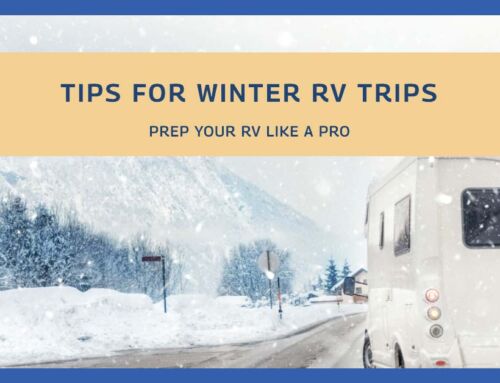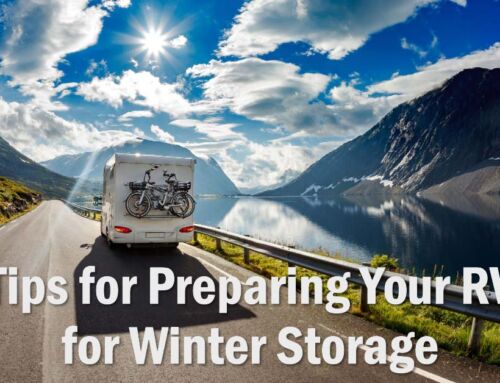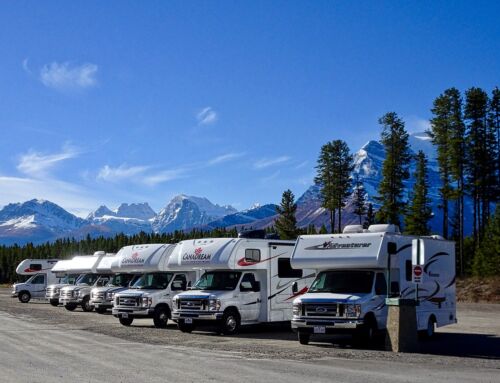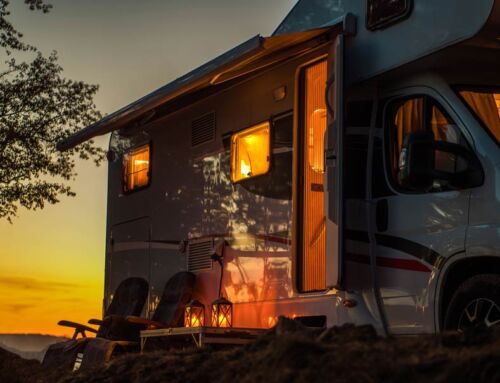Your RV is your home away from home, and if you’re an avid traveler it may be your primary abode! As you travel through the United States weather changes rapidly – especially in the winter months. That’s why it is important to take precautions to keep your recreational vehicle in good shape in snowy and icy conditions.
Here are eight tips to protect your RV in winter weather:
1) Inspect your RV
Inspect your RV for cracks or areas where water may settle. If you fail to address these issues before the winter weather hits them, water can get in, which, if it freezes, will cause cracks in your RV’s exterior.
2) Seal your RV
Most RV manufacturers recommend that you apply sealant to protect the exterior of your vehicle. You should also check seals on windows, doors, and hatches and replace them if needed. Also, consider adding curtains to windows to help keep out cold air.
3) Pay attention to your surroundings
Keep a close eye on the conditions, structures, and plants and trees when you park your RV. In cold, blizzard-like conditions, snow or ice may build up on these items above your RV and could potentially cause damage to your roof if they were to fall.
4) Prepare the plumbing
If the contents of your holding tanks freeze, it can definitely damage to the tanks. Add some RV Antifreeze to your holding tanks as it may be your saving grace to prevent messes with your plumbing system. The amount of Antifreeze you will need is specific to the size of the reservoir, so refer to the package and your manufacturer’s recommendations. As an alternative, there are heating pads designed for holding tanks that will work also. Most importantly, know the location of your RV plumbing so you can prevent and quickly address any issues you may have.
5) Check your tires
Make sure your tires are in good condition and suitable for winter driving. Driving on damaged or inappropriate tires could result in a blown tire or an accident.
6) Drive safely
Driving a heavier vehicle may help you with traction, but driving on ice is still risky. It is vital that you research the best strategies for driving on ice depending upon your situation because it varies between a towed vehicle versus a motor home and rear wheel drive versus front wheel drive. Above all, ensure that you have plenty of space between you and other vehicles and make slow changes such as speeding up, slowing down, and turning.
7) Storage
If you have reached your cold weather destination and have decided to store your RV, make sure you keep your vehicle in a safe place to prevent costly damage. Some options include purchasing a quality cover, making sure to keep your RV snow- and ice-free, or renting a storage unit. There are even temperature controlled storage facilities that wash your vehicle every time you use them!
8) Ask for a cold weather option
If you plan to purchase an RV and for visits to cold weather areas, inquire with your RV dealer or the original manufacturer about cold weather package options. These packages provide additional options to insulate your RV and it windows, and provide extra heating resources to prevent freezing.
Have you experienced damage from winter weather and need repair? We can help! Learn more about the recreational vehicle body shop at Downtown Autobody.



